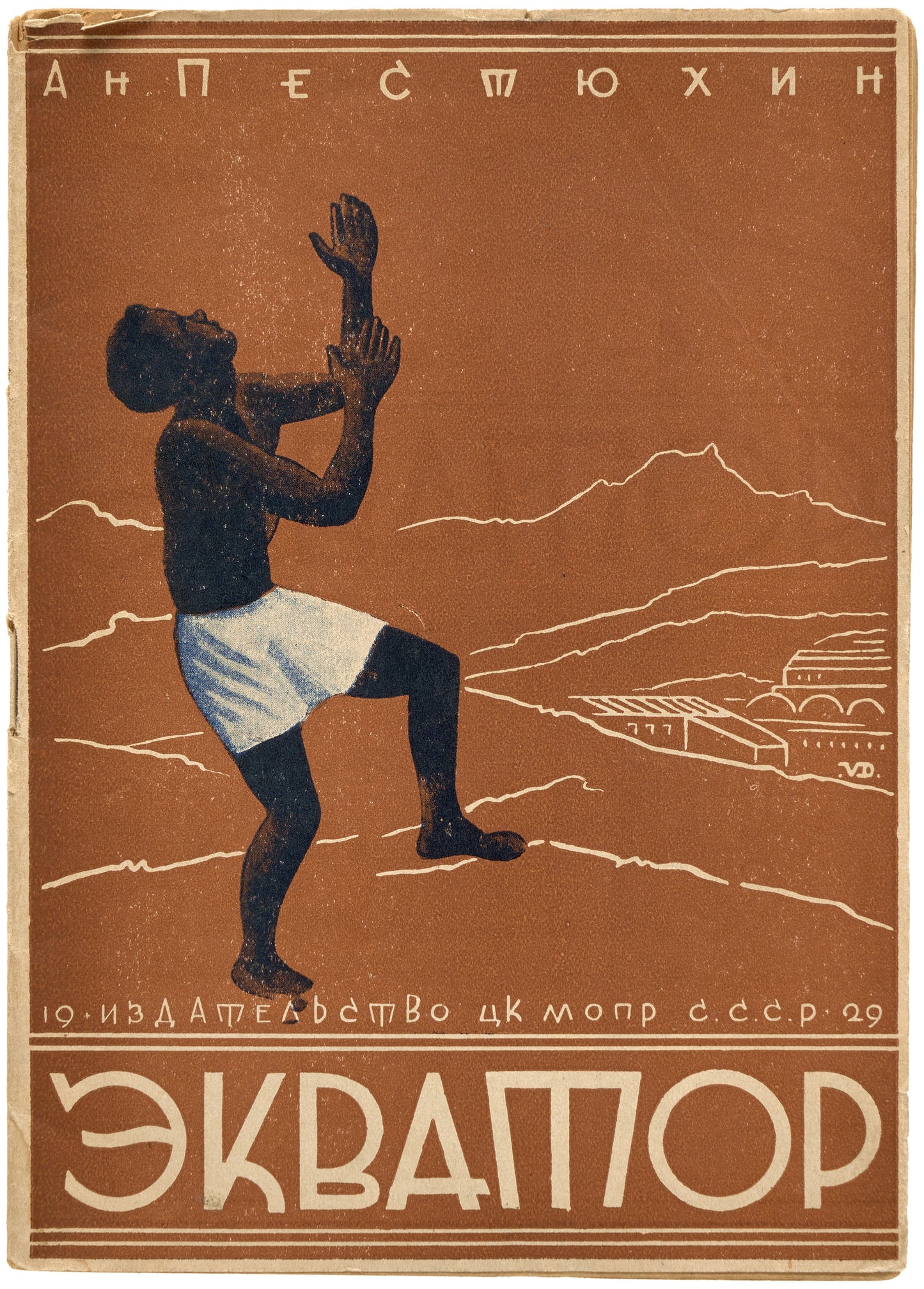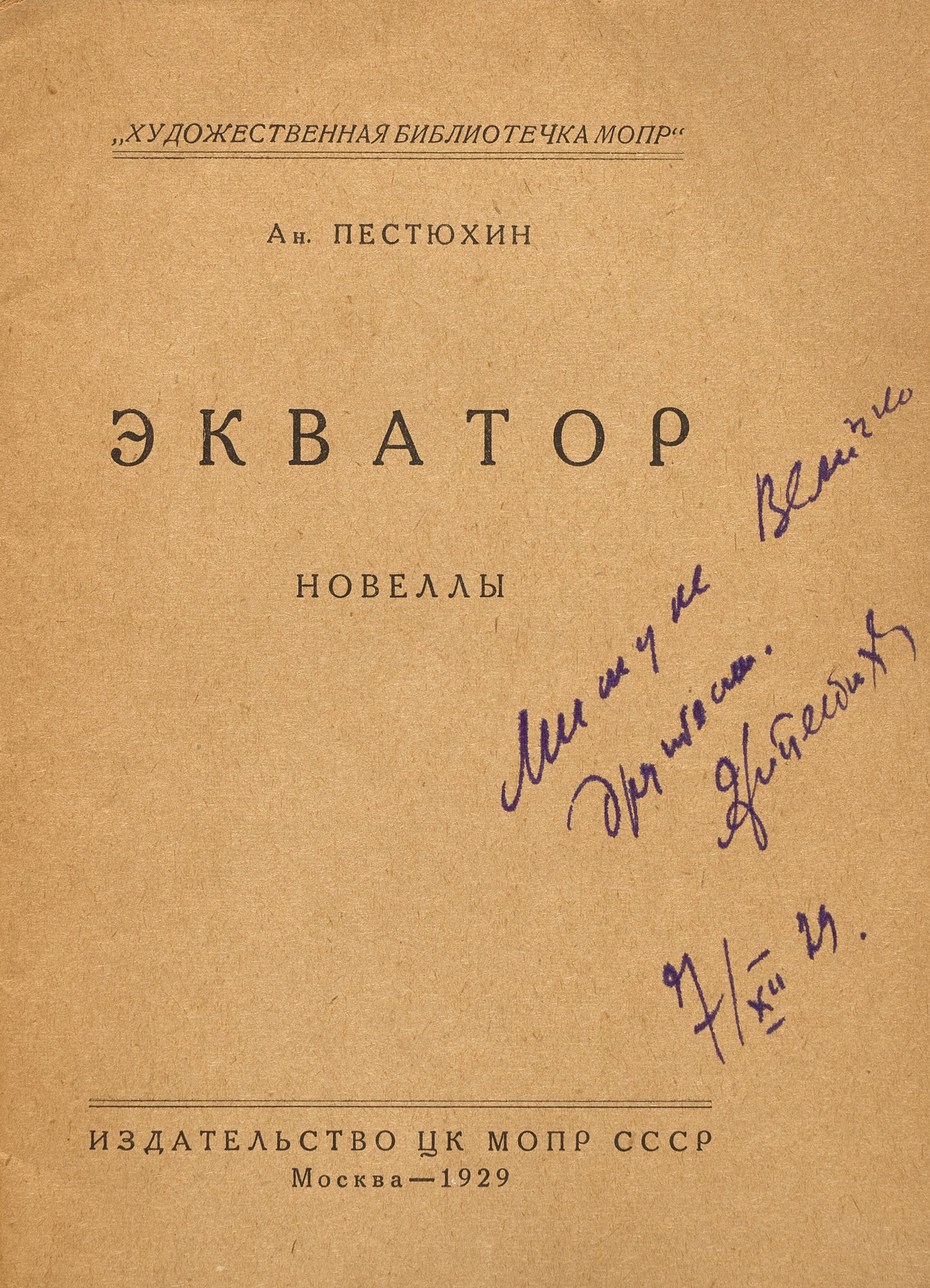Pestiukhin, Anatolii
The Equator: Novellas. 'How Wars Are Made'. Signed by the author.
The Equator: Novellas. 'How Wars Are Made'. Signed by the author.
Couldn't load pickup availability
Pestiukhin, An. [The Equator: Novellas]. Ekvator: Novelly.
Series Khudozhestvennaia bibliotechka MOPR.
Cover by V.D.
Moskva, Izd-vo TcK MOPR SSSR, 1929.
8vo, 30, [2] pp.
In original pictorial wrappers. Signed and inscribed to title page.
In good condition, small tear to front cover, small water stain to last page and back cover, owner notes to some pages.
Signed and inscribed by the author: 'Mishune Velichko / Druzheski / An. Pestiukhin / 7|XII 29' [To Mishunia Velichko, in friendship. An. Pestiukhin. December 7, 1929]. Rare first edition.
The book was authored by Anatolii Pestiukhin, a poet, translator, and journalist known by the pen name Ol’khon (1903-1950). He was a member of the Pereval ('Pass') group, a collective of post-Revolutionary Russian writers who opposed the suppression of nonconformist literature and the concept of enforced writing for the proletariat, ideas championed by the Octobrists. Pestiukhin extensively traveled throughout the USSR, including regions such as the Far North, Central Asia, Siberia, and the South Caucasus.
According to a brief preface to this book, in May 1929, Pestiukhin visited Adjaristan (Adjarian ASSR within the Georgian SSR), where he met with a French correspondent. During this encounter, this journalist handed over the diary of his brother who had passed away in Equatorial Africa. The author asserts that everything depicted in this book is based on real events. All the novels in this collection revolve around the colonial theme, with the final one titled 'How Wars Are Made'. This particular novel explores the story of two neighboring villages, Magon and Samau, within German and French colonies, where the inhabitants are provoked to kill each other.
Following this work, Pestiukhin did not return to the African theme in his writings. Furthermore, this book stands as the only prose written by Pestiukhin himself.
Between 1928 and 1930, he served as the deputy chairman of the Moscow Society of Peasant Writers. However, in February 1930, following the defeat of the Pereval group, he was arrested and exiled to Eastern Siberia.
The author signed this book to Mikhail Velichko (1905-after 1978), a military officer and the editor of the newspaper 'Krasnoflotets' ('Red Navy Sailor').
The book was printed in the typography of the Jewish publishing house 'Der Emes'.
We couldn't trace any copy in the USA via OCLC. One copy of this edition is in the Berlin State Library.




